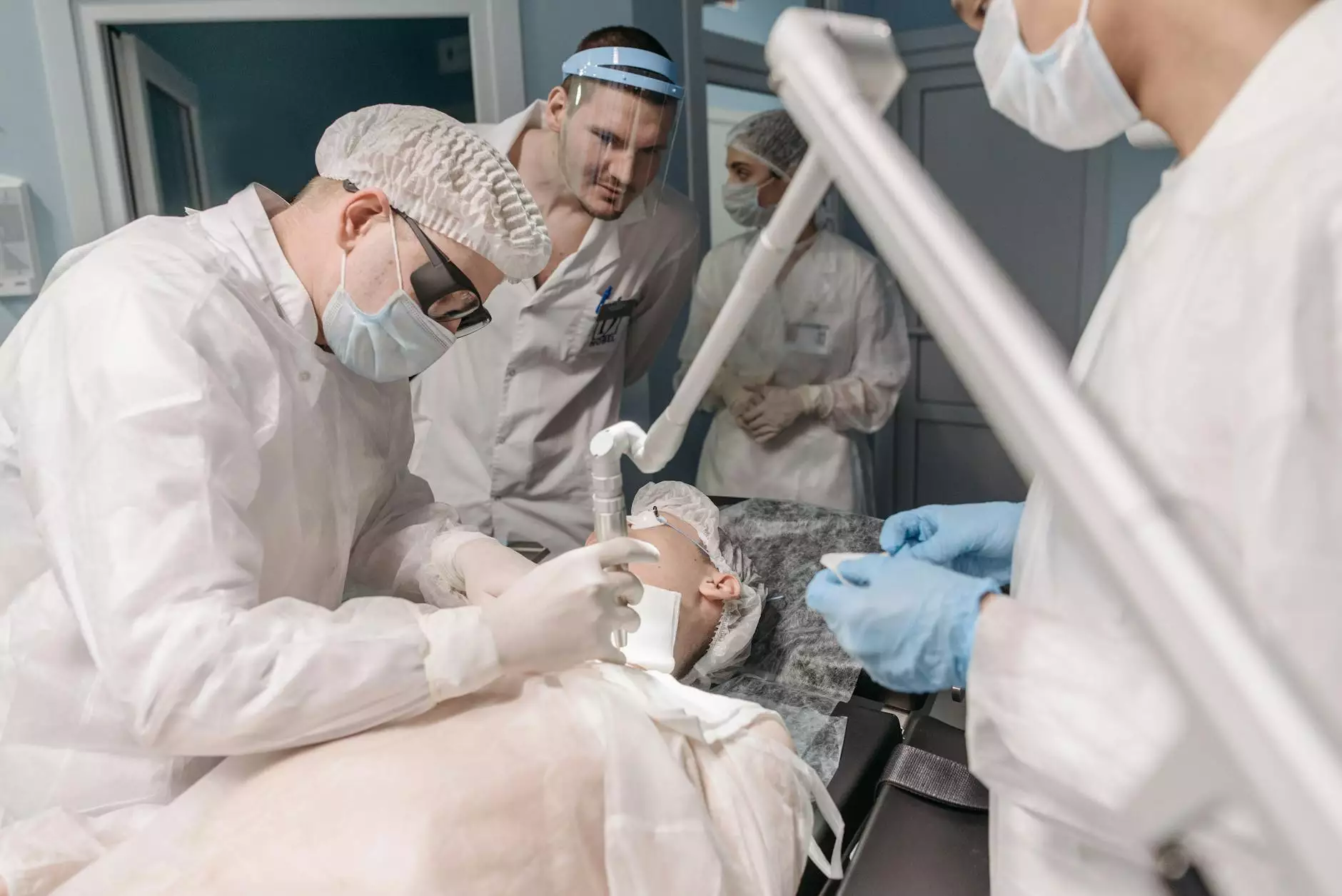Surgical Care Specialists: The Pinnacle of Healthcare Expertise

Surgical care specialists play a vital role in the healthcare ecosystem, offering patients unparalleled expertise and care. This article delves into the breadth of their services, the innovations in surgery, and how they contribute to healthier communities.
The Importance of Surgical Care Specialists
Surgery is often an essential component of healing, and surgical care specialists are at the forefront of this crucial field. They are equipped with extensive training and practical experience, enabling them to handle complex medical conditions. Here are some key reasons why these specialists are indispensable:
- Expertise in a Variety of Surgical Techniques: From minimally invasive procedures to complex surgeries, surgical care specialists have the know-how to perform a wide array of operations.
- Comprehensive Patient Assessment: They conduct thorough evaluations to determine the best surgical approach, ensuring personalized care for each patient.
- Post-operative Care: Their role doesn't end with surgery; they monitor recovery and address any complications that may arise post-operation.
- Collaborative Care: Surgical care specialists typically work with other professionals—such as anesthesiologists, nurses, and rehabilitation experts—to achieve the best patient outcomes.
Advancements in Surgical Techniques
The field of surgery is continuously evolving, with advancements that improve patient outcomes and recovery times. Some significant innovations pioneered by surgical care specialists include:
Minimally Invasive Surgery
Minimally invasive surgery (MIS) utilizes smaller incisions, resulting in less pain and quicker recovery for patients. Techniques like laparoscopic surgery, performed by skilled specialists, allow procedures to be done with precision, reducing hospital stays significantly.
Robotic Surgery
Robotic-assisted surgeries represent a significant leap forward. These surgeries improve dexterity and visualization, allowing specialists to perform highly complex procedures with enhanced precision and reduced risk.
Enhanced Recovery After Surgery (ERAS) Protocols
ERAS protocols promote faster recovery times through evidence-based care pathways. Surgical care specialists implement these protocols to minimize pain and complications, allowing patients to return to their normal lives sooner.
Choosing the Right Surgical Care Specialist
Finding the right surgical care specialist is crucial for anyone facing surgery. Here are several factors to consider when making your choice:
- Board Certification: Ensure the specialist is board-certified in their field, which indicates they have met rigorous education and training standards.
- Experience: Look for a surgeon with extensive experience in the specific procedure you require.
- Hospital Affiliations: Research the hospitals where the surgeon operates. High-quality facilities often lead to better outcomes.
- Patient Reviews: Reading reviews from past patients can provide insight into the surgeon’s bedside manner and care quality.
Common Surgical Procedures and Specializations
Within the realm of surgical care, specialists tend to focus on specific areas, allowing them to develop profound expertise. Some common specializations include:
General Surgery
General surgeons perform a wide range of procedures, often dealing with abdominal organs, such as the stomach and intestines.
Orthopedic Surgery
Orthopedic surgeons focus on the musculoskeletal system, addressing issues related to bones, joints, and ligaments.
Cardiothoracic Surgery
This specialization involves surgeries of the heart and chest, including bypass surgeries and valve replacements.
Pediatric Surgery
Pediatric surgeons specialize in surgical care for infants and children, addressing congenital disorders and other surgical needs unique to younger patients.
Integrating Traditional and Modern Techniques: The Role of Chinese Medicine
In Hong Kong and throughout Asia, the integration of traditional Chinese medicine (TCM) with modern surgical practices is gaining traction. This multidisciplinary approach enriches patient care and can enhance recovery. Surgical care specialists can incorporate elements of TCM such as acupuncture or herbal remedies to support healing post-surgery.
The Future of Surgical Care
As technology advances, the future of surgical care looks promising. Innovations such as personalized medicine and artificial intelligence are on the horizon, potentially transforming how surgical care specialists diagnose and treat patients. With emerging technologies, specialists will be able to explore previously unimaginable approaches to surgical complications, significantly enhancing patient safety and outcomes.
Championing Patient Safety and Quality Care
In the pursuit of excellence, surgical care specialists prioritize patient safety through meticulous protocols and continuous education. Ensuring that patients are well-informed and comfortable before undergoing surgery is a fundamental aspect of their practice.
Informed Consent
The informed consent process is critical in surgical care. Specialists take the time to educate patients about their conditions and the proposed surgical interventions, empowering them to make informed choices regarding their healthcare.
Quality Improvement Initiatives
Many facilities where surgical care specialists practice have established quality improvement initiatives to enhance surgical safety. These protocols often involve audits, feedback mechanisms, and regular training to ensure adherence to the highest standards of care.
Building a Trusting Relationship with Patients
Trust is an essential component of the surgeon-patient relationship. Surgical care specialists invest time in developing rapport with their patients, fostering open lines of communication.
- Empathy and Compassion: Great specialists understand the fears and anxieties surrounding surgery and address them with empathy.
- Personalized Follow-Up Care: Staying in touch with patients post-surgery allows specialists to monitor recovery and intervene if any issues arise.
Community Outreach and Education
Surgical care specialists also contribute to community health through outreach programs focused on education and prevention. By conducting workshops and seminars, they help demystify the surgical process and empower individuals to seek medical care when needed.
Conclusion: A Commitment to Excellence in Surgical Care
Surgical care specialists represent the confluence of expertise, compassion, and innovation within the healthcare arena. Their dedication to patient safety, commitment to employing cutting-edge techniques, and integration of holistic approaches position them at the forefront of medical science. As technology continues to evolve and patient needs change, these specialists will invariably adapt, ensuring that they provide the highest quality of care to all patients.
For anyone considering surgery, understanding the role and significance of surgical care specialists can help alleviate concerns and foster a path towards recovery and health. With a focus on comprehensive care and patient-centered practices, surgical care specialists truly exemplify professionalism in the realm of healthcare.



